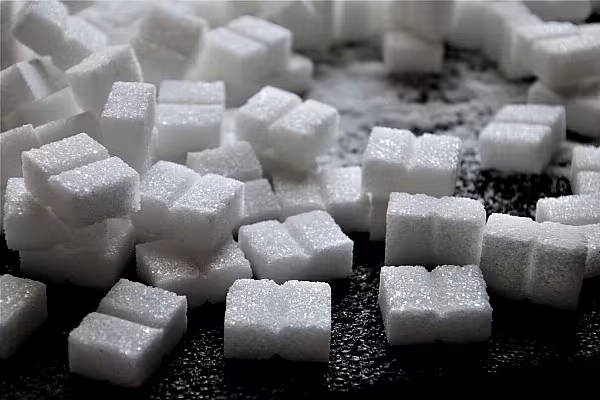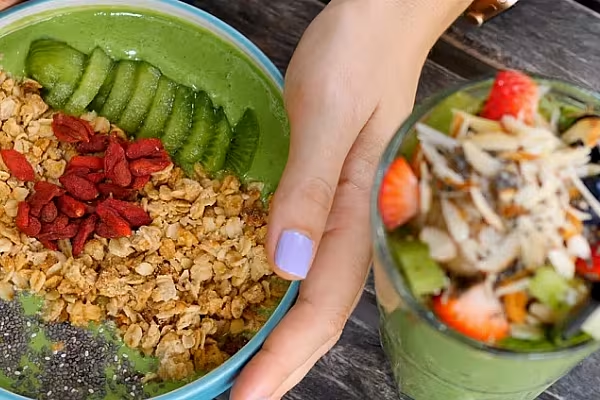While biofuels are often cited as an environmentally-secure alternative to petroleum, the negatives could outweigh the positives. Nick Peksa reports. This article first appeared in ESM Issue 3 2021.
The global economy has been hit hard by the pandemic. That said, the gloom is lifting and there is an expectation for a strong global recovery, as national vaccination programmes take hold and industry and commerce dusts itself off.
One thing is for certain, however – the pandemic has forced rapid changes in behaviour: from new working-from-home models to cuts in business and leisure air travel. These changes have encouraged an increasing number of governments to accelerate their nations' low-carbon targets.
The crude oil market, fuelled by the industry restart, has started to brush itself off after its dramatic collapse. With the current drive for biofuels, however, the petroleum sector may have to wait a further six years for a complete recovery.
This increased demand has resulted in the inevitable rise of crude oil prices, and, consequently, vegetable oils. Vegetable oil and crude oil have been closely correlated since 2007 when the biofuels industry really started to kick off.
Looking forward, does the new green agenda consider the sustainability of the vegetable oil industry?
Growth of Vegetable Oils
The growth of vegetable oil consumption has been extremely consistent over the last two decades. On average, demand is increasing 4% annually. To cater for this increased demand, the world has chosen to back palm oil. Palm oil now accounts for 36% of all vegetable oils produced, gaining an extra 12% of market share over the same period.
In the last decade, palm oil trade has increased by 15 million tonnes and now represents 60% to 70% of all global vegetable oils traded. The main regions of the world fuelling this demand, in order are: Indonesia, China, the EU and India. Although food use is the primary driver of the market (70%), the past decade has seen a 10% growth in the usage of palm oil for industrial applications.
Price Increases
The price of major vegetable oils has more than doubled in the last twelve months; however, it’s not just biodiesel demand that is driving prices. These increases have been caused by a number of additional factors; low stocks, COVID-19, weather effects and a global production deficit for the second consecutive year.
A good measure that provides insight into the relationship between supply and demand is the stocks to use (STU) ratio. The lower the ratio, the less the world is supplied. Currently, the STU for the nine major vegetable oils are forecast to hit their lowest levels since the 1990’s. High prices are expected to continue into the fourth quarter of 2021, thereafter, prices may ease when Asia enters its peak production period (September/October).
There is also an assumption that higher global oilseed plantings will occur, and more favourable weather is expected in these key growing regions. This new production should lead the world into a global surplus and therefore stimulate price decreases for the 2021/22 season.
Vegetable Oils As Fuel
Around two-thirds of EU palm is either being burnt for energy or indirectly burnt as a component of biodiesel. The incorporation of biofuels in diesel fuel blends reached its highest level in the past year at about 3.025 million tonnes (since the quota regime was introduced in 2007).
Indonesia, the world's biggest producer of palm oil, has a mandatory biodiesel programme with 30% palm oil content known as B30. The government is keen to expand the use of the vegetable oil for energy. Over the next two years, the Indonesian government is planning to further expand its mandate on biodiesel by increasing the palm oil content to 40%. Recently it has been announced that Indonesia intends to produce jet fuel made out of palm oil.
US President Joe Biden has also given a huge push towards greener fuels, particularly biodiesel. Already on the back of extremely tight supplies, Europe has been shipping rapeseed oil to Canada in order to prevent US biodiesel consuming its edible oil supplies.
With all this increased demand, what is the way forward for vegetable oils? Either prices remain high or production must be increased.
Is Palm Oil Sustainable?
The simple answer is probably not, if it continues to be used as a biofuel. Palm oil is one of the closest natural alternatives to crude oil and therefore is the vegetable oil of choice. Most of the world’s palm oil is produced in Indonesia and Malaysia – however, without cutting down some more rainforests, expansion in these countries is extremely limited. Could new regions of the world be planted with oil palm?
In order to grow, palm trees require specific conditions. They like to grow in soils that have a stable temperature of 25 degrees centigrade. They thrive in regions with a soil composition of 37% clay, 39% sand and 24% silt. For the tree to produce oil fruit, they also require an average rainfall of 20 centimetres per month. A global land analysis has identified a few regions of the world with these ideal growing conditions.
- Southeast Asia: Thailand, Papua New Guinea, Philippines, Sri Lanka
- North-Western South America: Ecuador, Guyana, Western Brazil, Colombia
- Africa: Kenya, Republic of Congo, Uganda
This sounds promising – until you realise these are the rainforest regions of the world and therefore could not be regarded as a new, sustainable source.
Other oilseeds can be used for biofuels, however. Palm oil yields significantly more oil per hectare than other oils – on average four times more. A palm oil plantation yields on average 4.19 tonnes/ha, while rapeseed oil only yields 1.31 tonnes/ha, with sunflower oil and soybean oil all yielding less than 1.0 tonnes/ha. Based on yields, replacing palm oil with rapeseed oil would require an area equivalent to the land mass of France to be planted. Again, not the most sustainable solution, as wheat and other food crops would be replaced.
Ending Thoughts
Rather than just a low-carbon future, a sustainable future must be considered. While biodiesel promises significantly lower carbon emissions, the land clearance taking place to grow palm oil is a problem. Using vegetable oils as biofuels is not sustainable.
On the positive side, some countries are forward thinking. Belgium is set to ban biofuels made from soybean and palm oil from next year, over concerns about deforestation.
For the time being, we need to embrace more expensive vegetable oils in the supply chain and pray governments provide more investment into fuel and renewable energy innovation. Hopefully, we can see a reversal of the trends for the uses of palm oil in our lifetime.
For more information, contact nick.peksa@cost-insights.co.uk.
© 2021 European Supermarket Magazine. Article by Nick Peksa. For more Supply Chain news, click here. Click subscribe to sign up to ESM: European Supermarket Magazine.














